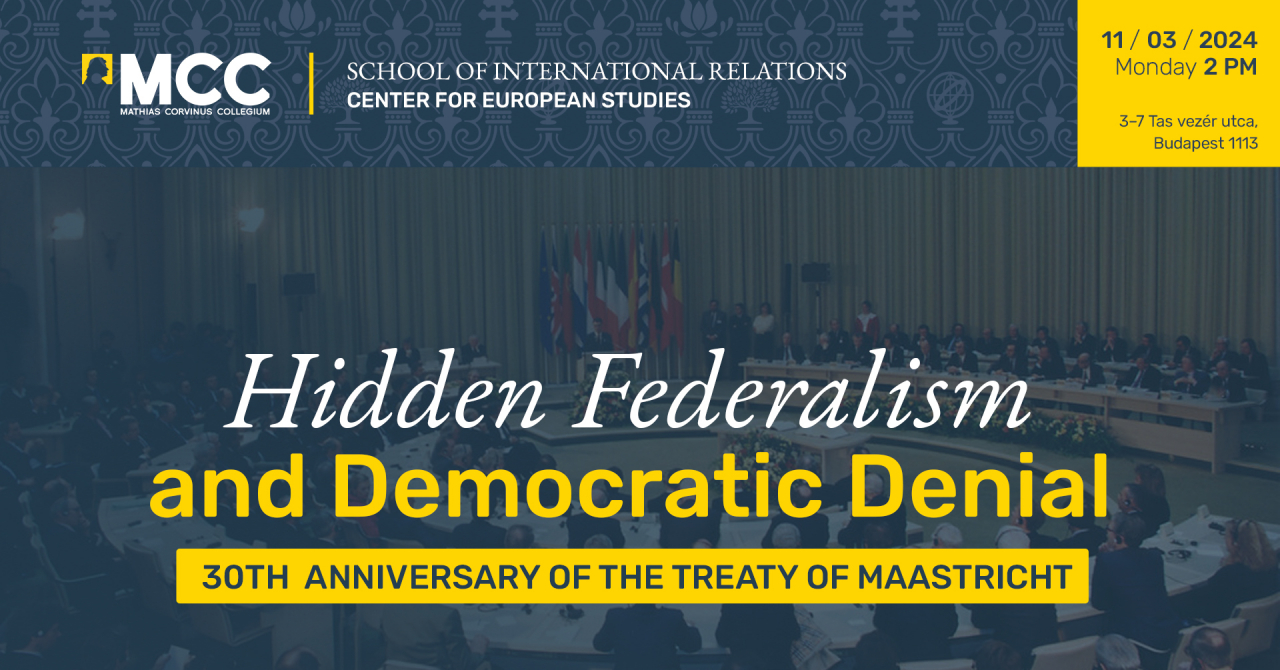Thirty years ago, the Maastricht Treaty established a European Union between the then 12 Member States of the Community: Belgium, Denmark, France, Germany, Greece, Ireland, Italy, Luxembourg, the Netherlands, Portugal, Spain, and the United Kingdom. A historic step forward in the construction of Europe, Maastricht continues to have consequences today, with a debatable record on monetary, migration and energy issues.From a central European, and particularly Hungarian perspective, Maastricht is often seen as a major cause of the European Union's current excesses. The treaty is seen as the expression of a great federalist leap forward, a headlong rush with harmful consequences. An analysis of the events leading up to the signing of this treaty will help us to understand what is at stake in the European Union today.Our day devoted to Maastricht aims to debate these issues by bringing together experts and players in the European integration, from both Western and Eastern Europe. It will focus on two main issues: the federalist leap forward and the democratic deficit created by Maastricht.
The detailed agenda is available here: AGENDA


